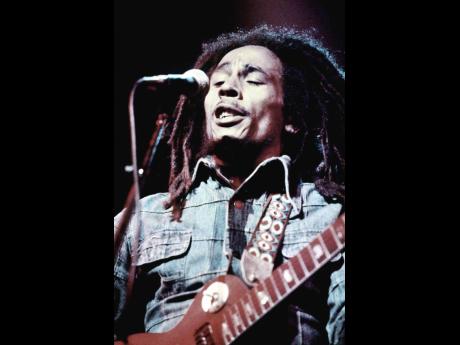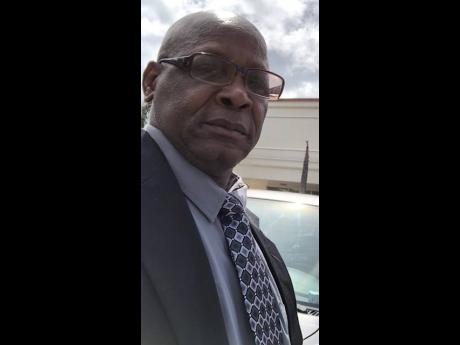Norris McDonald | On Buju Banton, ‘bugga-yagga’ music and middle-class hypocrisy
Buju Banton must be given a chance to continue his music career without being pre-judged. That’s my opinion. Some say we ought not to be lauding someone who committed a crime, while others believe that once that person paid the price for the crime, that person deserves a second chance.
Buju Banton, whose real name is Mark Myrie, was convicted in Tampa, Florida on a Federal drugs charge in 2011. He served time in the McRae Correctional Facility in George. In December 2018, he was released and returned to Jamaica to continue his exemplary and lucrative musical career.
Professor Rupert Lewis, in an article in The Gleaner on January 23, 2019, was one of several ‘tupanaris’ critics of Buju Banton. Dr Lewis strongly disagrees with Buju’s attempt to literally ‘nuff up himself’ to Nelson Mandela, who we all know as an outstanding freedom fighter.
Is Buju wrong to ‘even up himself’ with Nelson Mandela by using Mandela’s slogan ‘Long Walk to Freedom’?
To me, a slogan is just that – a slogan. It is we, as human beings, in my opinion, who, by the nature of our actions, put some quality or meaning to these slogans.
For example, the fact that someone say “money a guh jingle” or “better must come” does not, by itself, and in itself, make these slogans true. Slogans in and of themselves do not become “alive” or jump up and down like a duppy walking on moonshine road.
Neither is it true to say that unless there is a patent or copyright, this or that slogan cannot have universal application.
In a moral philosophical sense, I believe that what would be wrong, and truly crazy, would be if we, as human beings, worshipped slogans as if were are worshiping a god!
Therein lies the humbug in Dr Lewis’ criticism of Buju Banton. Is he saying that it is literally an act of blasphemy for Buju to use the slogan ‘Long Walk to Freedom’?
So much for sloganeering.
‘BUGGA-YAGGA’ MUSIC
Does the Jamaican educated middle class really serve the interests of the Jamaican people?
Marcus Garvey and Rastafari suffered political persecution at the hands of the educated middle class in both the People’s National Party and the Jamaica Labour Party.
Garvey’s philosophy and Rastafari strongly influenced Reggae Music. And yet, deep-rooted prejudices in our society led, in the late 1960s, to reggae music being called ‘Bugga-Yagga’ music, a very derogatory term.
This ‘Bugga-Yagga’, or working-class music, just like the artistes, faced social discrimination. Those were the days when policemen would raid dancehalls and smash sound systems.
Bob Marley was a victim of this negative attitude. It is reported that he had to walk and sell his records on foot. Bob was one of the many reggae musicians who were arrested for smoking ‘the holy weed’, ganja.
Buju, like Bob, among others, helped to uplift Jamaica by making reggae a Grammy-recognised genre. Indeed, Buju has won many international music awards, including the Grammy.
Many of Buju’s songs are progressive and morally uplifting, so what is wrong with his connecting with Nelson Mandela?
Truly, ‘it is not on an easy road’ in the rise of the so-called ‘bugga-yagga music’.
BANDOOLO SYSTEM
Meanwhile, can politicians and society’s ‘elite’ who have criticised Buju be truly deemed as being a good judge of moral character and having the right to do so?
If so, then why is it that we have a system rife with so much ‘politricks’ and bandlooism?
I believe it is hypocritical to act as if Garvey and Mandela are ‘gods’ the middle classes, educated elite, consciously or unconsciously, accept in a socially and economically unjust society.
Why isn’t the middle class demanding social justice for poor people?
A politician can be poor today and be suddenly rich tomorrow. Therefore, if a ‘bruck-pocket’ politician enters politics, and, in two shakes of a cow’s tail, that person has more money than ticks on a cow’s back, what exactly sets him up to be a good judge of moral character, or of Buju Banton, for that matter?
In 1983, there was a tragic political situation in Grenada – an internal political crisis that ended with the violent death of Prime Minister Maurice Bishop and others.
The United States then invaded the country. Dr Bernard Coard and others were arrested and sent to prison and are now rehabilitated.
Will there ever be any, ‘around the throne of grace’, Caribbean Truth Commission set up to seek answers about that Grenada crisis, such as:
- Were there any external political forces from Jamaica that were active in Grenada?
- If so, did they in anyway contribute to the political chaos that developed?
- What was the attitude of the Jamaican middle class and educated elite to the events in Grenada?
REDEMPTION
Dr Lewis sets out what I would call ‘The Buju Rule’, which, on the face of the evidence, suggests that for Buju to get redemption, he ought “to testify” about his “sins” as if at a church altar.
If that is the only way Buju’s soul can be redeemed, then let’s have a universal application of this ‘Buju rule’. If not, then why should Buju come to some hypocritical, man-made ‘throne of grace’ for redemption?
As human beings, we bring our imperfections to the table of life; to break bread; to share our love; to try to make life better for ourselves and our families. Some, like Buju, do it with music; others in other fields of endeavour.
If all of us were truly perfect, as we go about our daily strivings, would there really be any need for Heaven?
Buju says in his blockbuster song, Til Shiloh:
“Lord, it is not an easy road…
Help me sustain these blows.”
Many reggae artistes such as Bob Marley, Peter Tosh, Bunny Wailer, Clancy Eccles, Buju Banton, among others, gave their heart, soul, and life to uplift Jamaica.
Sinner or saint, Buju is not afraid to embrace positive, morally uplifting values.
How many of us are consistent in our demonstration of true moral ideals?
That, my friends, a de BITTA TRUTH!
- Norris McDonald is an economic journalist and social researcher. Email feedback to columns@gleanerjm.com and miaminorris@yahoo.com



